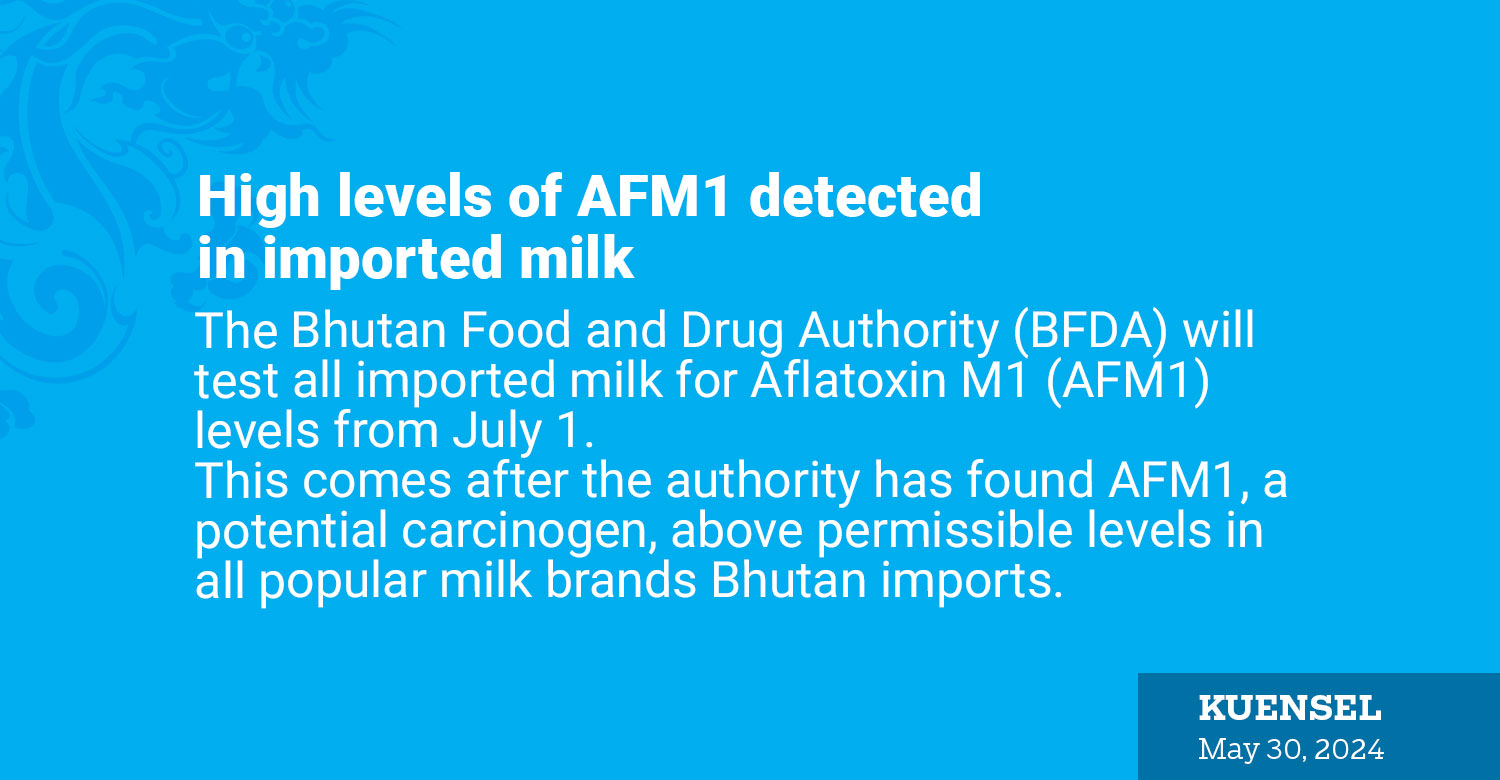
Food and drug authority to enforce stricter controls
The Bhutan Food and Drug Authority (BFDA) will test all imported milk for Aflatoxin M1 (AFM1) levels from July 1.
This comes after the authority has found AFM1, a potential carcinogen, above permissible levels in all popular milk brands Bhutan imports.
AFM1 is a mycotoxin, a toxic substance produced by certain fungi. When dairy animals consume feed contaminated with Aflatoxin B1, the toxin is metabolised in their livers and converted to AFM1, which is then excreted in their milk.
The maximum permissible concentration of AFM1 in milk is 0.5 mg/kg.
Recently, BFDA conducted surveillance on both imported and local milk for AFM1 levels. Imported milk was found to contain AFM1 above permissible levels, which was confirmed by an accredited reference laboratory outside Bhutan.
An authority official said that after the confirmation, all the milk in the country with AFM1 above permissible levels was discarded and disposed of.
The presence of AFM1 in food products is subject to stringent regulations, the official said.
The authority has conducted two meetings with milk importers to familiarise them with import requirements, including the existing import guidelines and Bhutan Mandatory Standards. “Bhutan FDA will implement the import control system on milk through the issuance of import authorisation with effect from July 1,” the official said.
All milk importers have been instructed to apply for an import permit from the nearest food and drug authority office with the relevant documents prescribed in the import permit application. “All import consignments shall be tested for AFM1 in an accredited laboratory prior to importation into the country, and test reports must be presented at the points of entry along with the milk consignment at the time of import,” the official said.
The authority plans to conduct independent random testing to ensure that the milk batches do not exceed the permissible limit for AFM1. “If the milk is found to contain above the permissible limit of AFM1, importers shall recall the implicated products and take necessary action,” the official said, adding that the failure to comply with the requirement will result in the prohibition of milk imports into the country as per the existing food legislation of Bhutan.
In May, the authority also tested the presence of ethylene oxide in the Everest brand following reports from India of ethylene oxide levels exceeding the permissible level of 0.1 mg/kg in Everest Fish Curry Masala. The majority of the samples tested showed the levels of ethylene oxide below the limit of quantification – 0.01 mg/kg – and a few batches were found to have levels below 0.1 mg/kg.
The authority then announced that the levels of ethylene oxide detected in the Everest brand masalas did not pose a significant concern.
Most packaged food contains various components, such as additives, preservatives, mycotoxins, and contaminants, including heavy metals, whose levels are controlled by Bhutan Mandatory Standards to ensure they are within permissible levels for safe consumption.
Ethylene oxide found in the fish curry masala from the Everest brand is commonly used as a fungicide, bactericide, and insecticide in foods.
The food and drug authority says it will continue to monitor and regulate the presence of harmful substances in food items, prioritising the health and wellbeing of the citizens.












